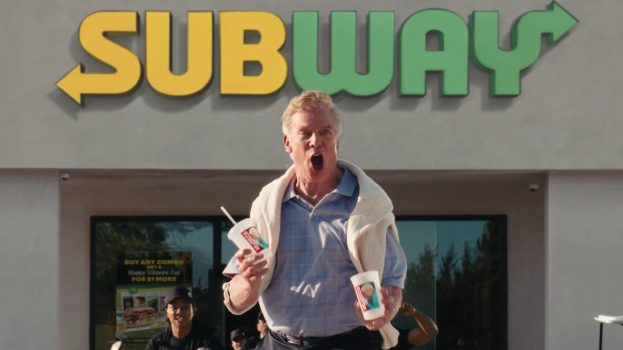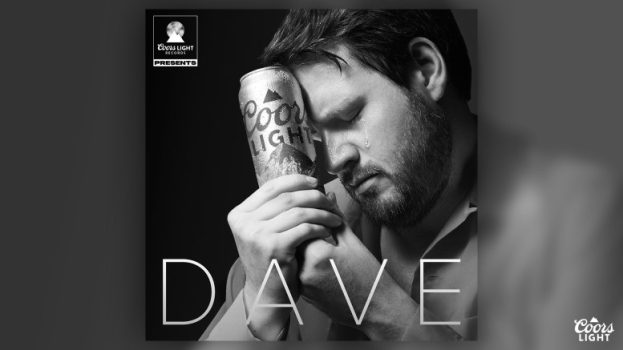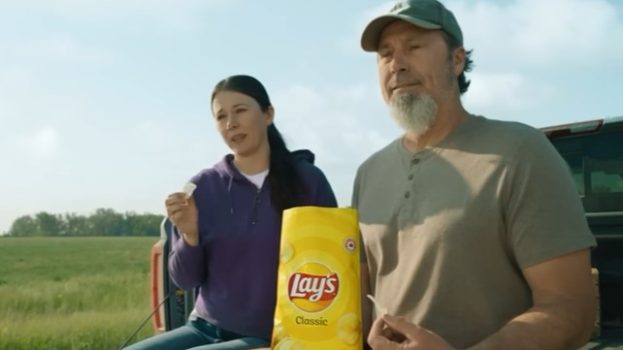
Greenfield asks customers to go meatless
It’s not everyday that a company encourages its customers to buy less often – making it the kind of counter-intuitive marketing play that could just prove successful for brands brave enough to adopt it.
In the case of Maple Leaf-owned Greenfield Natural Meat, one senses that the strategy goes beyond the usual attention-grabbing stunt, however. When it launched a campaign by Havas in February announcing that it was “going meatless on Mondays,” it did so with a genuine appeal to consumers about considering the environmental impacts of their consumption habits.
The idea was that by choosing to consume less meat at least one per week (the campaign spot ended with the revelation that the magnificent smell coming from the grill is, in fact, vegetables), consumers could have a tangible impact on the environment and help contribute to a more sustainable food system. It’s a novel approach for a category that has tended to place more emphasis on the production side of sustainability, and one that fits nicely within the company’s objective of reducing its environmental footprint by 50% come 2025.
In announcing its decision to go meatless on occasion, Greenfield simultaneously aligned itself with broader industry trends (have you been able to get your hands on the Beyond Meat burger, which promptly sold out when A&W began selling them?) that have seen even veggie meal brand Yves Veggie Cuisine approach “flexitarian” consumers considering to ditch meat one in a while.
Justin Dallaire, StrategyDaily reporter and C-Suite editor
Koho’s lovely content play

Anyone with a pulse is a sucker for love. And anyone with a phone is susceptible to social media black holes. For me, Koho’s weaving of those two things (human interest stories + content consumption) in the #delandann #lovestory was a monumental effort that I’d like to see more from brands in the coming year.
The content program is subtle; it offers a thoughtful value exchange between millennials and the brand (‘You give us attention, we’ll entertain you – oh, and we’ll also help you smarten up and save up’); all while supporting local businesses. When Koho bid on, and won, a stack of letters from 1955, the brand knew nothing of its contents. But it turned out that those 84 letters from Del (the male protagonist) to Ann (his love) contained goals, like saving up enough money for the two of them to move in together.
Opening those old-timey notes must have felt like a jackpot moment for the marketing team. Koho is big on helping users reaching goals by setting a daily cash amount in order to save for big- and mid-ticket items, like a beach house or some fancy shoes. How the brand chose to distribute those letters also stood out for me. Pairing Del’s words with photos of items that could be purchased by local small businesses was smart in connecting the app with the idea of it being the savings aide for items just like those featured. And that, too, speaks to its broader message of aspiring Canadians to feel more at ease when it comes to saving and spending money. And for marketers, it creates a compelling case to follow through on a much-desired goal for 2019: simply, make advertising that doesn’t feel like advertising at all.
Jennifer Horn, strategy editor
MEC walks the walk

Lots of brands talk the talk about being woke, but very few back it up. Mountain Equipment Co-op (MEC) is probably best known for selling everything merino-wool socks and Hydrofoil jackets to urbane athletes (or city-dwellers who want to look like athletes). But its dizzying array of high-end active gear isn’t the reason why the Vancouver-based company is consistently ranked as one of Canada’s most reputable companies. It’s because the popular retailer consistently takes bold stands that align with its brand and that of its customers.
After a petition in the wake of a mass shooting in Florida, its CEO pledged to stop selling several outdoor equipment brands from a company that is also a gun manufacturer. Then, in October, CEO David Labistour called his own company out in an open letter for depicting mainly only white people in its ads for decades, vowing to do better to represent a diverse range of people in its ads going forward.
The lesson for other leaders? No brand is perfect. That’s OK. Openly and honestly acknowledging missteps is what consumers care about. Oh, and actually doing something about the acknowledged problem beyond simply saying sorry.
Melissa Dunne, strategy special reports editor and copy chief
Doja suits up to fight for cannabis amnesty

One disappointing thing about the legalization of recreational cannabis has been a lack of recognition from the industry that many other people – primarily Black and Indigenous people – remain in jail or carry a criminal record for something companies are now in a position to profit immensely from. While CSR efforts focused on fighting impaired driving, promoting safe consumption and giving back to communities are all commendable (see below), it was disheartening to not see more proactive efforts to address issues of diversity in the industry or fight for amnesty for those charged with something that is now completely legal, especially when polls suggest 62% of Canadians support pardons for cannabis offences (Aurora, one of the world’s biggest licensed producers, made amnesty its main CSR priority this year, but the $50,000 pledge they made in support of that still feels like a drop in the bucket for a company that reported $29 million in revenue in its most recent quarter).
One exception to this was Doja, a licensed producer owned by Hiku (which also owns retailer Tokyo Smoke and was acquired by Canopy Growth earlier this year). Working with agency Juliet, the company released a line of products emblazoned with the word “Pardon” to help raise awareness about the issue, with all proceeds from their sale going to support volunteer advocacy group Cannabis Amnesty, one of the groups leading the fight for amnesty. I tend to be skeptical of “commerce for charity” initiatives and claims that branded products help spread the word about the issue, but having a product also allowed Doja to put more of its marketing weight behind the effort, engaging influencers as part of the campaign. It also sent out street teams in the clothes to gather signatures on petitions during a time when similar teams from other LPs were simply stopping people on the street to raise awareness of their brand.
(In case you were interested in being a more conscious legal cannabis consumer, Supreme Cannabis – the company behind the 7Acres brand – has a c-suite comprised mostly of people of colour, while other LPs like 48North have committed themselves to working with First Nations investors to behave with integrity, be respectful of the land it grows its product on and fostering connections with the community.)
Josh Kolm, StrategyDaily editor and Tech editor
Tweed teams up with Uber and MADD

A campaign from three unlikely partners – Mothers Against Drunk Driving, Uber and cannabis brand Tweed – really emphasized the “recreational” aspect of recreational cannabis use.
Since cannabis became one of the most talked-about topics in marketing, I’ve been waiting for a campaign that addressed the fun and lighthearted side of consumption without playing into Reefer Madness-era stereotypes, and one that also emphasized safety and conscious consumption without seeming grim or joyless.
The campaign, which highlights things to do instead of driving high, shows that fun activities – and fun campaigns – don’t need to be complicated. The design of the campaign is also delightfully mellow, opting for muted military greens and deep black instead of patronizing candy brights. Oh, and the suggestions are actually pretty useful. I’m a fan of #56 in particular.
Bree Rody-Mantha, Media in Canada news editor and Stimulant editor
Sunnybrook enlists war photographers

No Fixed Address took a powerful stance when creating a spring campaign for The Sunnybrook Foundation, enlisting war photographers to bring a new perspective to the hospital wings.
Photographed by photojournalists Christopher Morris and Ron Haviv, the campaign captured some of life’s most intimate moments spent in a hospital, such as the first minutes a mother spends with her newborn twins, a doctor’s diagnosis and the profoundness of an empty hospital bed.
To convey the important role that hospitals like Sunnybrook play in our lives, the still images ran in a TV spot with the tagline, “Where Impossible Becomes I’m Possible,” which powerfully highlights the courage of its staff, volunteers, researchers and patients who fight battles head-on each day.
Catherine Phillips, Media in Canada staff writer























